Have you ever found yourself waking up from a dream, slightly flushed and with a feeling of desire lingering in the air? Sexual dreams are a fascinating phenomenon that many people experience at some point in their lives. These dreams can range from the subtle and sensual to the vivid and explicit, invoking feelings of pleasure and arousal. But what exactly are sexual dreams, and what role do subconscious desires play in shaping their content? In this article, we will delve into the world of sexual dreams, exploring their significance, the influence of subconscious desires, and how to interpret and understand these often perplexing nocturnal experiences. So, get ready to unlock the secrets of your subconscious as we embark on this journey through the mysterious realm of sexual dreams.
What are Sexual Dreams?
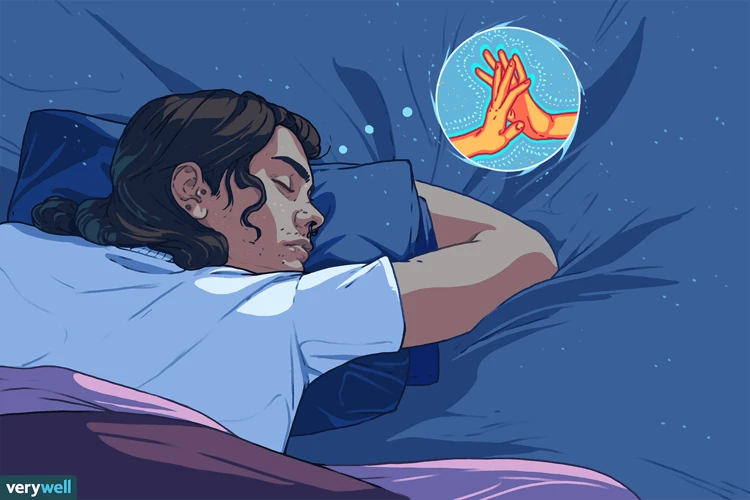
Sexual dreams, also known as erotic dreams, are a type of dream that involves sexual themes, imagery, or experiences. These dreams can be vivid and intense, and they often elicit strong emotional and physical responses. Sexual dreams can occur during any stage of sleep, but they are most common during REM (rapid eye movement) sleep, which is when our brains are highly active and vivid dreaming occurs. The content of sexual dreams can vary widely and may involve a variety of scenarios, individuals, or activities. Some common themes in sexual dreams include engaging in sexual acts with a partner or multiple partners, experiencing sexual pleasure or arousal, or even encounters with fictional or celebrity figures. It is important to note that sexual dreams do not necessarily reflect real-life desires or intentions, but rather they are a product of our subconscious mind and the complex interactions of our thoughts, emotions, and experiences. To better understand the meaning behind sexual dreams, it is essential to explore the role of subconscious desires and engage in the practice of dream interpretation. For more information on interpreting sexual dreams, check out our in-depth guide here.
Definition and Characteristics
– Sexual dreams are dreams that involve themes, imagery, or experiences related to sexuality and sexual desire. These dreams can cover a wide range of scenarios, from romantic encounters to explicit sexual activities.
– The characteristics of sexual dreams can vary greatly from person to person. Some people may have frequent sexual dreams, while others may experience them less frequently. The intensity and vividness of these dreams can also differ, with some individuals reporting highly detailed and immersive experiences.
– Sexual dreams can involve both familiar and unfamiliar individuals, including real-life partners, past or present crushes, celebrities, or even fictional characters. The dreamer may engage in various sexual activities within the dream, such as kissing, intercourse, or other forms of sexual pleasure.
– It is important to note that the content of sexual dreams does not always align with an individual’s conscious desires or preferences. These dreams are influenced by the subconscious mind and can be shaped by a multitude of factors, including personal experiences, fantasies, and emotional states.
– Exploring the meaning of sexual dreams and their significance can be a complex task. Dream interpretation can provide insights into the underlying emotions, desires, and unresolved issues that are reflected in these dreams. For a comprehensive guide on understanding and interpreting sexual dreams, refer to our detailed article here.
The Significance of Dreams
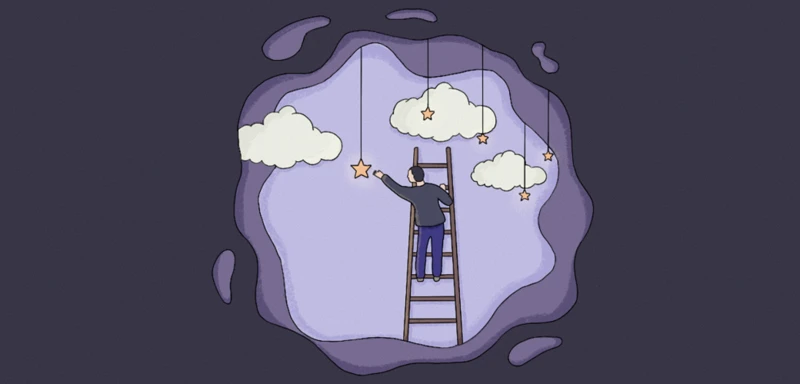
Dreams have long fascinated and intrigued humans, as they hold significant meaning and insight into our inner workings. They serve as a window into our subconscious mind, revealing unexpressed desires, unresolved conflicts, and hidden emotions. The significance of dreams extends beyond simple entertainment during sleep; they act as a bridge between our conscious and unconscious selves, providing valuable information about our thoughts, fears, and motivations. Psychologists and dream theorists have offered various interpretations of dreams, each contributing to our understanding of their significance. Sigmund Freud, the founder of psychoanalysis, believed that dreams were a manifestation of suppressed desires and hidden symbolism. On the other hand, Carl Jung, a renowned psychologist, saw dreams as a pathway to the collective unconscious, where archetypal symbols held profound meaning. Exploring the significance of dreams can lead to personal growth, self-discovery, and a deeper understanding of ourselves. To uncover the hidden messages within your dreams, consider diving into our comprehensive guide on dream interpretation here.
Exploring the Freudian Interpretation
Exploring the Freudian Interpretation:
– Sigmund Freud, the renowned psychoanalyst, had a significant impact on the field of dream interpretation. According to Freud, sexual dreams were not random or meaningless but were deeply rooted in our subconscious desires and childhood experiences. He believed that dreams served as a pathway to uncovering repressed or unconscious sexual desires, which he referred to as “wish fulfillment.”
– Freud proposed that sexual dreams were a manifestation of our subconscious desires for pleasure and satisfaction. He argued that the content of these dreams often contained symbolic representations of our hidden sexual thoughts and desires, which were disguised and distorted in the dream imagery to protect our conscious mind from anxiety or guilt.
– According to Freud, sexual dreams could have both manifest content (the actual events and imagery of the dream) and latent content (the underlying, hidden meaning of the dream). He asserted that analyzing the symbolism and interpretation of the latent content could reveal the true sexual desires and conflicts present in our subconscious mind.
– Freud also introduced the concept of “sexual symbolism,” which suggested that certain objects, actions, or events in dreams could represent sexual elements or desires. For example, he associated dream elements such as water, snakes, or phallic symbols with sexual themes, emphasizing the unconscious sexual meaning behind their appearance in dreams.
– It is important to note that Freud’s interpretation of sexual dreams has often been criticized and questioned by modern psychologists and scholars. While his theories offered valuable insights into the role of subconscious desires, they were also limited by their heavy reliance on sexual explanations and the exclusion of other psychological factors.
– Nevertheless, Freud’s work and ideas laid the foundation for understanding the influence of subconscious desires in dreams, particularly in relation to sexual imagery and symbolism.
Interpretation from a Jungian Perspective
Interpretation from a Jungian perspective offers a unique and insightful understanding of sexual dreams. Carl Jung, a renowned Swiss psychiatrist and psychoanalyst, believed that dreams hold great symbolic meaning and can provide a window into the collective unconscious. According to Jung, sexual dreams are not only expressions of personal desires but also manifestations of archetypal symbols that represent universal and timeless patterns of the human psyche.
From a Jungian perspective, sexual dreams often symbolize a deeper exploration of the self and the integration of masculine and feminine energies within an individual. These dreams may represent the union of opposing forces, such as the conscious and unconscious mind, or the integration of different aspects of one’s personality. Jung emphasized that sexual dreams should not be interpreted literally, but rather as symbolic representations of psychic processes and inner conflicts.
In Jungian dream analysis, the interpretation of sexual dreams involves recognizing recurring symbols and patterns, known as archetypes, that have a collective and universal meaning. For example, the anima and animus archetypes represent the feminine and masculine aspects within an individual, respectively. Sexual dreams may manifest as encounters with unknown lovers, or having passionate interactions with famous figures, highlighting the exploration and integration of these archetypal energies.
Jung also emphasized the importance of considering the context and personal associations of the dreamer. Each individual brings their own unique experiences and cultural background, which can influence the symbolism and meaning of sexual dreams. A Jungian interpretation would involve exploring the personal associations and emotions evoked by the dream, as well as identifying any recurring symbols or motifs that may have broader archetypal significance.
Interpreting sexual dreams from a Jungian perspective involves delving into the symbolic realm of the unconscious, recognizing archetypal symbols, and exploring the integration of masculine and feminine energies within the individual. By understanding the deeper meaning and subconscious influences behind sexual dreams, individuals can gain insight into their psychological landscape and work towards personal growth and self-awareness.
The Role of Subconscious Desires in Dreams
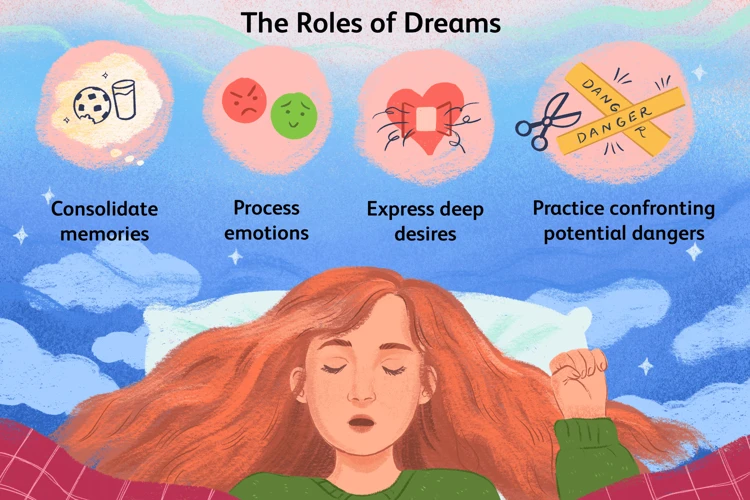
The role of subconscious desires in dreams is a fascinating and complex subject. Our subconscious mind holds a wealth of information, thoughts, and emotions that may be hidden or repressed in our waking life. When we sleep, our subconscious mind takes the spotlight, and our dreams become a canvas for these desires to manifest. The subconscious mind has the power to shape our dreams, infusing them with elements that reflect our innermost longings and aspirations. It is through these dreams that we can gain insights into our deepest desires, even those that we may not be consciously aware of. The influence of subconscious desires on dream content can be profound, leading to the emergence of vivid, emotional, and often symbolic experiences during sleep. Whether it is the yearning for intimacy, unfulfilled fantasies, or power dynamics, our subconscious desires play a crucial role in shaping the narratives of our dreams. Understanding the significance of these desires is a key step in unraveling the complex tapestry of our dream world and gaining deeper insights into our own psyche.
The Power of the Subconscious Mind
The subconscious mind is a powerful force that plays a significant role in shaping our thoughts, emotions, and behaviors, including the content of our dreams. It is the part of our mind that operates below the level of conscious awareness, yet it has a profound influence on our subconscious desires and motivations. The subconscious mind acts as a reservoir of memories, experiences, and emotions, storing and processing information that may not be immediately accessible to our conscious mind. It operates in a non-linear and symbolic manner, making connections and associations that may not be apparent on a conscious level. When we sleep and enter the dream state, our conscious mind takes a backseat, allowing the subconscious mind to take center stage. During this time, our desires, fears, and unresolved conflicts can find expression in the form of dreams. The power of the subconscious mind lies in its ability to tap into these hidden desires and bring them to the surface of our awareness, often in the form of symbolic scenarios or imagery. By understanding and harnessing the power of the subconscious mind, we can gain valuable insights into our deepest desires and motivations, helping us navigate our waking life with greater self-awareness and understanding.
The Influence of Desires on Dream Content
Our dreams are often a reflection of our subconscious desires, and this holds true for sexual dreams as well. Desires have a significant influence on the content and themes that manifest in our dreams. Our subconscious mind is constantly processing and integrating our desires, whether they are repressed, unfulfilled, or even fantasies we may not be consciously aware of. These desires can be influenced by a variety of factors, including our personal experiences, cultural influences, and societal norms. When we sleep, our subconscious mind becomes more active, and these desires can manifest themselves in the form of sexual dreams. For example, if we have a deep longing for intimacy and connection, our dreams may depict scenarios involving romantic or intimate encounters. On the other hand, unfulfilled fantasies or desires for exploration and novelty may result in dreams that feature more adventurous and unconventional sexual experiences. It’s important to note that the content of sexual dreams is highly subjective and individualized. What one person may dream about may have entirely different connotations or meanings for another individual. The influence of desires on dream content highlights the intricate relationship between our conscious and subconscious minds. By exploring and understanding our desires, we can gain deeper insights into ourselves and our emotional and psychological needs.
Understanding Sexual Dreams
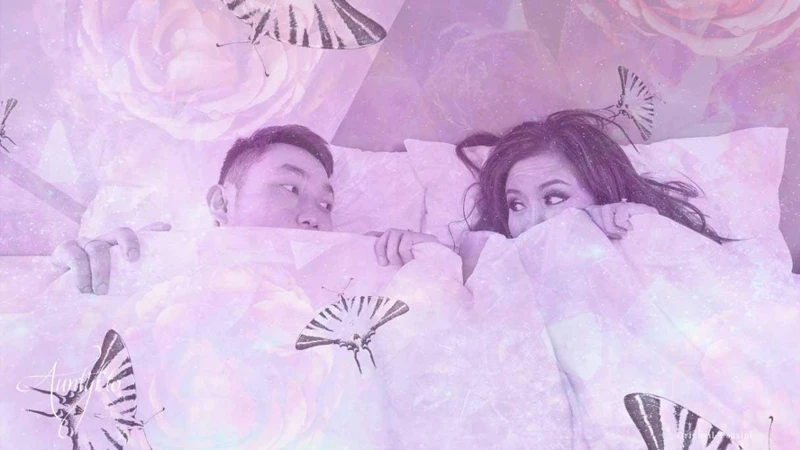
Understanding sexual dreams can be a complex and intriguing endeavor. These dreams often tap into deep-seated desires, emotions, and experiences that may not always be apparent in our waking lives. To make sense of sexual dreams, it is helpful to examine common themes that often emerge. These themes can include dreams about forbidden or taboo sexual activities, encounters with ex-partners or crushes, engaging in sexual acts in public or unusual settings, or fantasies involving specific body parts or fetishes. Each dream is unique to the individual, reflecting their own personal history, cultural background, and subconscious desires. Exploring the symbolism and context within sexual dreams can provide valuable insight into our own hidden emotions, needs, and desires. By deciphering the meaning behind these dreams, we can gain a deeper understanding of ourselves and our innermost desires.
Common Themes in Sexual Dreams
When it comes to sexual dreams, there are several common themes that tend to appear repeatedly. These themes can provide insight into our subconscious desires and fantasies. Here are some of the most prevalent themes observed in sexual dreams:
1. Sex with an Ex: Dreams about engaging in sexual activities with an ex-partner are not uncommon. These dreams may signal unresolved feelings or a desire to revisit past experiences.
2. Same-Sex Encounters: It is not unusual to have sexual dreams involving individuals of the same gender, even if one identifies as heterosexual. These dreams may indicate a curiosity or exploration of one’s own sexuality.
3. Fantasies and Taboo Scenarios: Sexual dreams often involve scenarios that may be considered taboo or forbidden in waking life. These could include BDSM, exhibitionism, or other fantasies that the dreamer may not express openly.
4. Celebrity or Fictional Encounters: Dreams about engaging in sexual activities with celebrities or fictional characters can be exciting and intriguing. These dreams may represent a desire for excitement, adventure, or an escape from reality.
5. Unfulfilled Desires: Sexual dreams may also reflect unfulfilled desires or unmet needs in one’s personal life. These dreams might involve sexual encounters with individuals the dreamer finds attractive in waking life but has not had the opportunity to pursue.
It’s important to remember that these themes are not universal and can vary from person to person. The interpretation of sexual dreams should take into account personal experiences, emotions, and individual associations. Exploring the symbolism and context of these dreams can provide valuable insights into our subconscious desires and help us better understand ourselves on a deeper level.
Interpreting Sexual Dreams
Interpreting sexual dreams can be a fascinating and introspective journey. While these dreams often contain rich symbolism and imagery, understanding their deeper meaning requires careful reflection and analysis. Here are some tips for effectively interpreting sexual dreams:
1. Keep a Dream Journal: Start by keeping a dream journal next to your bed. As soon as you wake up, write down the details of your dream, including any emotions, people, or specific actions that stood out to you. This will help you capture the dream’s essence and allow you to reflect on it later.
2. Analyze Personal Associations and Experiences: Look for connections between the content of your sexual dream and your own personal associations and experiences. Reflect on whether any particular events, people, or situations in your waking life might have triggered the dream. Consider the emotions and desires that were present in the dream and how they relate to your own experiences.
3. Understand Symbolism and Context: Remember that dreams often rely on symbolism to convey messages. Explore the symbolic meaning behind the people, objects, and actions in your sexual dream. For example, a dream about water could represent emotions or the unconscious mind, while a specific person in the dream may symbolize aspects of yourself or someone you know.
4. Seek Professional Help if Needed: If you find it challenging to interpret your sexual dreams on your own, consider seeking the guidance of a therapist or dream analyst. They can provide insights and help you uncover the deeper meaning behind your dreams.
Remember, the interpretation of dreams is subjective, and what holds true for one person may not apply to another. Trust your own intuition and understanding when exploring the meaning of your sexual dreams. By delving into the symbolism and personal significance of these dreams, you can gain a deeper understanding of your subconscious desires and emotions.
Psychological Interpretations

Psychological interpretations provide valuable insights into the meaning and significance of sexual dreams. According to Freudian theory, sexual dreams are often seen as symbols of repressed desires and unresolved conflicts. Freud believed that our dreams serve as a way for the subconscious mind to express hidden wishes or unfulfilled needs. These desires may be suppressed due to societal norms or personal inhibitions, but they find an outlet in the realm of dreams. On the other hand, Carl Jung, a prominent psychologist, took a different approach to the interpretation of dreams. He viewed sexual dreams as manifestations of archetypal symbols and universal themes that are deeply ingrained in the collective unconscious. According to Jung, sexual dreams can represent the integration of the masculine and feminine aspects of our psyche, as well as the exploration of our deepest desires and fears. By examining sexual dreams through these psychological lenses, we can gain a deeper understanding of ourselves and the complex workings of our subconscious mind.
Repressed Desires and Symbolism
Repressed desires and symbolism play a crucial role in the interpretation of sexual dreams. Our subconscious mind often uses symbolism to represent hidden or repressed desires that we may not be fully aware of in our waking life. In sexual dreams, symbols can manifest in various forms, such as objects, actions, or even specific individuals. For example, a dream about a locked door or a closed box could symbolize repressed sexual desires or a sense of inhibition. Similarly, dreaming about a forbidden or inaccessible person may represent unfulfilled desires or a yearning for someone who is emotionally unavailable. These symbolic representations in sexual dreams provide an outlet for exploring and expressing our innermost desires and fantasies that we may hesitate to acknowledge consciously. By recognizing and deciphering the symbolism in our dreams, we can gain valuable insights into our subconscious desires and address any underlying issues or unmet needs. It is important to approach the analysis of symbolism in sexual dreams with an open mind and seek guidance from a qualified professional if needed.
Unresolved Conflicts and Emotional Needs
Unresolved conflicts and emotional needs are another key psychological interpretation when exploring the role of subconscious desires in sexual dreams. Our dreams often serve as a reflection of our internal struggles and unresolved issues. When it comes to sexual dreams, they can provide a window into unmet emotional needs and unresolved conflicts within our psyche. These dreams may arise as a way for our subconscious mind to explore and process these unresolved issues in a safe and symbolic way. For example, a sexual dream involving an unknown partner or a former love interest could signify a longing for emotional connection or closure in a past relationship. Similarly, if someone is experiencing difficulties in their current relationship, they may have sexual dreams that reflect their desire for resolution or a need for more intimacy. It is essential to look beyond the explicit sexual content of these dreams and examine the underlying emotions and conflicts they represent. By doing so, we can gain valuable insights into our psychological well-being and work towards finding resolution and fulfillment in our waking lives.
The Connection between Desire and Dream Content
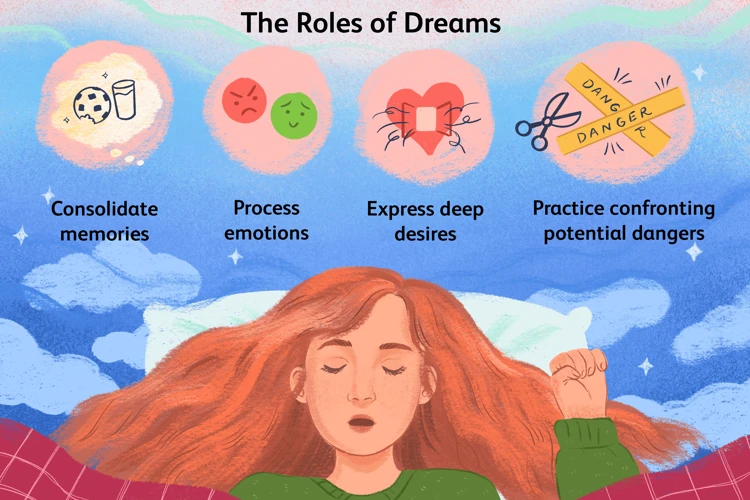
The connection between desire and dream content is a fascinating aspect of the human psyche. According to Freud’s theory of wish fulfillment, dreams are a manifestation of our subconscious desires and wishes. The desires that we may not be fully aware of or that are repressed during our waking hours find an outlet in our dreams. These desires can range from the mundane to the taboo, encompassing a wide spectrum of human wants and needs. Dreams serve as a space where our subconscious mind can freely explore and express these desires. Similarly, Carl Jung’s theory of archetypal symbols suggests that dreams contain symbolic representations of our deepest desires and needs. These archetypal symbols can provide valuable insights into our psyche and the underlying motivations behind our thoughts and behaviors. By analyzing and interpreting the connection between desire and dream content, we can gain a better understanding of ourselves and our innermost longings.
Freud’s Theory of Wish Fulfillment
Freud’s Theory of Wish Fulfillment is a key concept in understanding the relationship between desires and dream content. According to Sigmund Freud, dreams serve as a means for the fulfillment of repressed or unconscious wishes. Freud believed that our unconscious mind harbors a multitude of forbidden or socially unacceptable desires, which are typically suppressed in our waking state. However, during sleep, these desires find expression through our dreams. Freud argued that dreams disguise these repressed desires by manifesting them in symbols or allegorical narratives. In this way, the latent content of a dream, which represents the hidden desires, is transformed into the manifest content, which is the actual content that is experienced in the dream. Freud emphasized the importance of analyzing the symbolic elements in dreams to uncover the underlying desires that they represent. For example, a dream about flying could be a manifestation of the desire for freedom or a sense of power and control. Freud’s Theory of Wish Fulfillment suggests that our dreams provide a safe space for the fulfillment of these repressed desires, allowing us to experience them in a symbolic and often distorted manner. By delving into the symbolism and hidden meanings of our dreams, we can gain valuable insights into our true desires and subconscious thoughts.
Jung’s Theory of Archetypal Symbols
Jung’s Theory of Archetypal Symbols suggests that the content of dreams, including sexual dreams, is deeply influenced by universal symbols and archetypes that are embedded in the collective unconscious. According to Jung, the collective unconscious is a reservoir of shared experiences, images, and concepts that are inherited and present in all human beings. These archetypes are universal patterns or motifs that represent basic human desires, fears, and experiences. In the context of sexual dreams, Jung believed that certain archetypal symbols, such as the anima (the feminine aspect in men) and the animus (the masculine aspect in women), play a significant role. These symbols can manifest in dreams as different characters or figures who embody specific qualities and attributes related to sexuality. For example, the anima may appear as a seductive woman, while the animus may manifest as a powerful and virile male figure. Jung emphasized the importance of recognizing and understanding these archetypal symbols in order to gain insight into our subconscious desires and the deeper meaning behind our sexual dreams. By exploring the symbolism and context within our dreams, we can unravel the intricate layers of our psyche and gain a deeper understanding of our own sexual identity and desires. To learn more about the psychology behind sexual dreams and explore different interpretations, check out our comprehensive guide here.
Interpreting Sexual Dreams
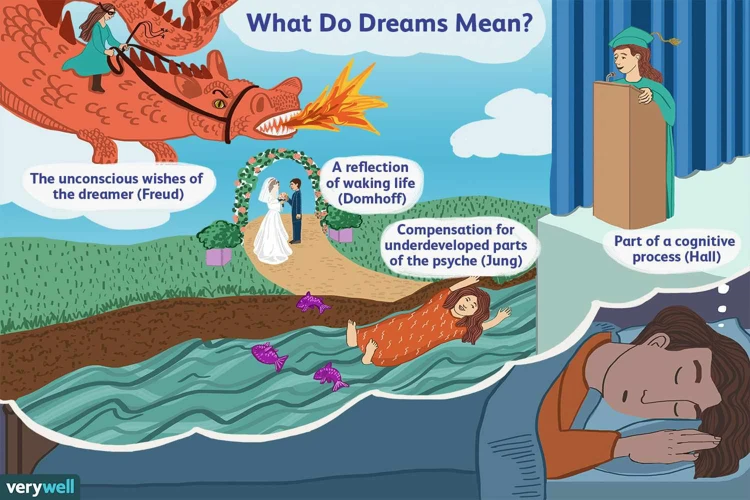
Interpreting sexual dreams can be a fascinating and enlightening process. These dreams often carry symbolic meanings and insights into our subconscious desires and unresolved emotions. To begin interpreting sexual dreams, it is essential to analyze personal associations and experiences related to the dream content. Reflecting on your own unique history and relationships can provide valuable clues and context for understanding the dream’s significance. Additionally, understanding symbolism and context is crucial in deciphering the messages of sexual dreams. Symbols such as water, animals, or specific actions can hold deeper meanings that may unveil hidden desires or emotional states. Keeping a dream journal and recording the details of your dreams can also aid in the interpretation process. By exploring the rich symbolism and personal connections embedded within sexual dreams, we can gain a deeper understanding of ourselves, our desires, and our emotional well-being. To further explore the interpretation of sexual dreams, check out our comprehensive guide here.
Analyzing Personal Associations and Experiences
When it comes to interpreting sexual dreams, analyzing personal associations and experiences is a crucial aspect. This involves examining the symbols, characters, and scenarios present in the dream and relating them to your own life and experiences. One way to approach this analysis is by creating a list or table of the elements in the dream and then brainstorming any personal connections or associations you may have with each one. For example, if the dream involves a specific location, think about any memories or emotions attached to that place. Similarly, if a certain person appears in the dream, consider your relationship or history with that individual. By dissecting these individual elements and exploring their personal significance, you can gain insights into the underlying meanings and desires represented in the dream. Additionally, reflecting on recent events, emotions, or challenges in your waking life can provide valuable context for understanding the dream’s content. Keeping a dream journal and revisiting past dreams can also help identify recurring patterns or symbols that may have personal significance. Remember, dream analysis is a subjective process, and it is important to trust your own intuitive understanding of your dreams.
Understanding Symbolism and Context
Understanding symbolism and context is crucial when interpreting sexual dreams. Our dreams often use symbols and metaphors to convey deeper meanings and emotions. It’s important to remember that dream symbols are unique to each individual and can have different interpretations based on personal experiences and cultural associations. When trying to decode the symbolism in sexual dreams, it is essential to consider the context in which the dream occurs. Analyzing the setting, the people involved, and the emotions felt during the dream can provide valuable insights into its meaning. For example, dreaming about being in a crowded party may symbolize a desire for social connection or a need for validation, while dreaming about a secluded beach might represent a longing for intimacy and relaxation. It’s also essential to consider the feelings and emotions experienced within the dream. Are you feeling pleasure, guilt, fear, or confusion? These emotions can provide clues about your subconscious desires and fears that are being played out in the dream. Additionally, paying attention to recurring symbols or themes in your dreams can help identify patterns and offer a deeper understanding of your subconscious thoughts and desires. By analyzing the symbolism and context of your sexual dreams, you can gain valuable insights into your innermost desires and emotions. So, embrace your curiosity and dive into the mysterious world of dream interpretation.
Common Subconscious Desires in Sexual Dreams

Common subconscious desires often manifest in sexual dreams, providing a window into our deepest longings and fantasies. These dreams can reveal a range of desires, including the need for intimacy, unfulfilled fantasies, and power dynamics. The desire for intimacy is a frequent theme, representing a longing for emotional connection and closeness. In sexual dreams, individuals may seek a sense of emotional and physical intimacy that they may be longing for in their waking lives. Unfulfilled fantasies and desires can also emerge in sexual dreams, allowing individuals to explore their deepest yearnings and experiences that may not be realized in their everyday lives. Power and control dynamics can also play a significant role in sexual dreams, reflecting a subconscious need for dominance or submission. These dreams can illuminate the complexities of our desires and provide insight into the hidden aspects of our psyche. By acknowledging and embracing these subconscious desires, we can better understand ourselves and potentially find avenues for their healthy expression.
Exploring the Need for Intimacy
When exploring the need for intimacy in sexual dreams, it is important to consider the deep human longing for connection and closeness. Intimacy goes beyond physical attraction and involves emotional, mental, and spiritual bonds with another person. In sexual dreams, the presence of intimacy may signify a desire for a deeper emotional connection or a longing for a fulfilling relationship. This need for intimacy can manifest in various ways within the dream, such as a sense of emotional vulnerability, sharing intimate moments with a partner, or engaging in deep conversations that promote emotional connection. It is worth noting that the need for intimacy in sexual dreams does not necessarily imply a lack of intimacy in real-life relationships. Instead, it may serve as a reminder of the importance of emotional closeness and the desire to strengthen existing connections. Understanding this aspect of sexual dreams can provide valuable insights into one’s emotional needs and foster a deeper understanding of oneself and relationships in general. Embracing and nurturing the need for intimacy can contribute to a more fulfilling and satisfying dream life as well as real-life interactions.
Unfulfilled Fantasies and Desires
Unfulfilled Fantasies and Desires play a significant role in shaping sexual dreams. Our subconscious mind often uses dreams as a platform to explore and fulfill desires that may remain unfulfilled in our waking lives. These unfulfilled fantasies can range from simple desires for novelty or excitement to more complex and deeply-rooted needs for intimacy or exploration. When these desires go unmet in reality, they may manifest in our dreams as a way for our subconscious to make sense of and process these unfulfilled longings. In sexual dreams, these fantasies can take various forms, such as engaging in taboo or forbidden acts, exploring different sexual orientations or preferences, or experiencing intense and passionate encounters with individuals who represent qualities or characteristics that we find desirable. It is important to remember that while sexual dreams may provide an outlet for unfulfilled desires, they do not necessarily indicate a direct correlation with our real-life actions or intentions. Understanding and acknowledging these unfulfilled fantasies and desires can help us gain insights into our deeper selves and provide an opportunity for self-exploration and personal growth. By embracing and analyzing these dreams, we can gain a deeper understanding of our own desires, needs, and aspirations.
Power and Control Dynamics
Power and control dynamics play a significant role in sexual dreams. Our dreams often reflect our deepest desires and fantasies, and for some individuals, these desires may revolve around power dynamics and control in a sexual context. In these dreams, one may experience scenarios where they have the dominant role, exerting control and authority over their partner(s). This can manifest in various ways, such as engaging in BDSM activities, role-playing as a dominant figure, or even being in a position of power and control over multiple individuals. On the other hand, some individuals may dream of being in a submissive role, relinquishing control and allowing their partner(s) to have power over them. These dreams could involve scenarios such as being restrained, experiencing submission, or engaging in acts of pleasure at the hands of someone else. It’s crucial to note that dreaming about power and control dynamics doesn’t necessarily indicate a desire for these dynamics in real-life relations. These dreams merely serve as a channel for exploring and expressing our subconscious thoughts and desires. Understanding and accepting these dreams can help individuals gain insights into their own sexual preferences and interests.
Embracing and Integrating Subconscious Desires

Embracing and integrating our subconscious desires can be a transformative and empowering journey. Rather than suppressing or dismissing these desires, acknowledging and understanding them can lead to a deeper sense of self-awareness and growth. To embrace and integrate our subconscious desires, it is important to cultivate acceptance and understanding. Recognize that desires are a natural part of being human and that exploring them does not make us abnormal or deviant. By creating a safe space for ourselves to explore and express our desires, we can begin to unravel the complexities of our subconscious mind. This process may involve seeking therapy or counseling, engaging in open and honest communication with trusted partners or friends, or even journaling and reflecting on our desires. It is also crucial to differentiate between healthy expression of desires and harmful behavior. Understanding consent, boundaries, and mutual respect is essential in ensuring that our desires are actively integrated in a way that promotes healthy relationships and personal growth. So let us embark on this journey of self-discovery and embrace the richness of our subconscious desires. To learn more about exploring and integrating sexual dreams, check out our guide on Embrace and Learn from Your Sexual Dreams.
Acceptance and Understanding
Acceptance and understanding are crucial when it comes to exploring and embracing our subconscious desires in sexual dreams. One of the first steps in this process is accepting that sexual dreams are a natural part of human experience. They are a reflection of our thoughts, emotions, and desires, and should not be judged or suppressed. By accepting and acknowledging our sexual dreams, we can create a safe space for self-exploration and personal growth. It is also important to approach these dreams with an open mind and a willingness to understand their deeper meanings and messages. Instead of dismissing them as mere fantasies, we can delve into the symbolism, context, and personal associations within the dream. This requires honest self-reflection and introspection to explore how these desires may connect to our waking lives and psychological well-being. Acceptance and understanding of our sexual dreams can lead to a greater sense of self-awareness and allow us to integrate our subconscious desires in a healthy and constructive way. It is a journey of self-discovery that can enhance our relationships, emotional well-being, and overall satisfaction in life.
Exploring Healthy Expression of Desires
When it comes to exploring healthy expression of desires in the context of sexual dreams, it is crucial to prioritize consent, communication, and understanding boundaries. Here are some key points to consider:
1. Self-reflection and awareness: Take the time to understand your desires and motivations. Reflect on what you truly want and what aligns with your values and ethics. This self-awareness will help guide you in exploring your desires in a healthy and consensual manner.
2. Open communication: If you have a partner, it is essential to have open and honest conversations about your desires and boundaries. Discuss what feels comfortable and pleasurable for both of you. This communication creates a safe space for exploration and ensures that both partners feel respected and heard.
3. Consent is essential: It is crucial to remember that consent is a vital aspect of any sexual encounter, whether it is in real life or within the realm of dreams. Consent should be enthusiastic, ongoing, and mutually understood by all parties involved. Without consent, even in the realm of dreams, it is important to avoid engaging in actions that can perpetuate harm or violate personal boundaries.
4. Seek professional guidance if needed: If you find that exploring your desires is causing emotional distress or impacting your overall well-being, consider seeking guidance from a therapist or sexologist who can provide a safe space for discussion and offer insights into healthy expression of desires.
Exploring healthy expression of desires within sexual dreams requires self-awareness, open communication, and upholding the principles of consent. By prioritizing these aspects, you can navigate the realm of dreams in a way that is respectful, fulfilling, and aligned with your values.
Effect of External Factors on Dream Content
The content of our dreams is not solely influenced by our subconscious desires; external factors also play a significant role. One key factor that can impact dream content is our environment. The media we consume, such as movies, TV shows, or books, can introduce various themes and images into our subconscious, which may manifest in our dreams. For example, watching a romantic movie before bed could lead to dreams of love and intimacy. Additionally, our physical and emotional states before sleep can affect dream content. Stressful or emotional experiences during the day can carry over into our dreams, while physical discomfort or illness can shape the narrative of our dreams as well. It is important to remember that dreams are intricate tapestries woven from a combination of inner desires and outer influences, creating a unique and often perplexing experience.
Influence of Media and Environment
The influence of media and environment on dream content, including sexual dreams, should not be underestimated. Our surroundings and the media we consume play a significant role in shaping our thoughts, desires, and fantasies. The pervasive nature of sexual imagery and content in movies, television shows, advertisements, and online platforms can seep into our subconscious mind and manifest in our dreams. Exposure to explicit or suggestive sexual content can leave a lasting imprint on our psyche, leading to the emergence of similar themes in our dreams. Similarly, our immediate environment and experiences can also impact our dream content. For example, if we have recently been in a sexually charged or stimulating environment, such as attending a provocative event or being in the presence of attractive individuals, it may influence the content of our sexual dreams. Additionally, stress, anxiety, and other emotional factors in our environment can influence the intensity and nature of our dreams, including sexual dreams. So, it is essential to recognize the potential impact of media and our surroundings on the formation of sexual dreams and consider them when interpreting their content. The delicate interplay between our subconscious desires, media exposure, and environmental factors contributes to the complex tapestry of our dreams.
Physical and Emotional States
Our physical and emotional states play a significant role in shaping the content of our dreams, including sexual dreams. The state of our body and mind during sleep can have a profound influence on the nature and intensity of our dreams. Physical factors such as pain, illness, or discomfort may manifest in our dreams, altering their tone or content. For example, if we are experiencing physical arousal or sexual tension before falling asleep, it may translate into sexual dreams during the night. Similarly, our emotional state, such as stress, anxiety, or excitement, can infiltrate our dreams and manifest as sexual imagery or scenarios. Dreams often serve as a way for our subconscious mind to process and integrate our waking experiences and emotions, so it’s not surprising that our physical and emotional states can shape the content of sexual dreams. Maintaining a healthy balance in both our physical and emotional well-being can contribute to having more positive and fulfilling dream experiences. By prioritizing self-care, stress reduction, and emotional regulation, we can create an environment that fosters pleasant and fulfilling dreams, including sexual dreams.
Conclusion
In conclusion, sexual dreams provide a glimpse into the intricate workings of our subconscious mind and the role that desires play in shaping our dream content. These dreams can range from the subtle and symbolic to the explicit and vivid, reflecting a variety of subconscious desires, unresolved conflicts, and emotional needs. Freud’s theory of wish fulfillment suggests that sexual dreams serve as a means for our subconscious to fulfill repressed desires, while Jung’s theory of archetypal symbols highlights the presence of universal themes and motifs in these dreams. Analyzing personal associations and experiences, as well as understanding the symbolism and context of the dream, can offer valuable insights into the meaning and significance of sexual dreams. It is important to embrace and integrate our subconscious desires, seeking acceptance and understanding rather than shame or suppression. By exploring healthy expressions of desires and addressing any unfulfilled fantasies or emotional needs, we can strive for overall well-being and personal growth. It is worth noting that external factors, such as media influences and our physical and emotional states, can also impact the content of our sexual dreams. By taking these factors into consideration, we can gain a more comprehensive understanding of our dreams and their connections to our waking lives. So, the next time you find yourself aroused or perplexed by a sexual dream, remember that it holds valuable insights into your subconscious desires and can be a catalyst for self-exploration and self-acceptance. Embrace, learn, and grow from these dreams and use them as a tool for greater self-awareness and understanding.
Frequently Asked Questions
1. What causes sexual dreams?
Sexual dreams can be influenced by a variety of factors, including hormonal changes, past experiences, fantasies, and subconscious desires. They are a reflection of the complex workings of our minds and can occur spontaneously or be triggered by external stimuli.
2. Are sexual dreams a sign of sexual dissatisfaction?
No, sexual dreams do not necessarily indicate dissatisfaction in one’s sex life. They are a normal part of dreaming and can stem from a variety of sources, including imagination, fantasies, or subconscious desires. It is important not to overanalyze or attach undue significance to these dreams.
3. Can sexual dreams be interpreted literally?
While sexual dreams can contain explicit content, they are often symbolic representations of our emotions, desires, and thoughts. It is generally more useful to interpret these dreams metaphorically rather than taking them at face value.
4. Do sexual dreams always involve specific individuals?
No, sexual dreams can vary greatly in terms of the people involved. They may feature current partners, past partners, celebrities, or even fictional characters. The individuals in the dream often represent different aspects of ourselves or the qualities we find attractive.
5. Are sexual dreams only experienced by adults?
No, sexual dreams can be experienced by individuals of all ages, including adolescents and older adults. The content and intensity of these dreams may vary depending on personal experiences, hormonal changes, and overall psychological well-being.
6. Do sexual dreams always result in orgasm?
No, sexual dreams do not always lead to orgasm. While they can be accompanied by physical sensations and arousal, the physiological response varies from person to person. Some may wake up experiencing orgasm, while others may not experience any physical response.
7. Can sexual dreams be influenced by external factors?
Yes, external factors such as media exposure, recent experiences, or current relationship dynamics can influence the content of sexual dreams. Our subconscious mind often incorporates elements from our waking life into our dreams.
8. Are sexual dreams a sign of deviant behavior?
No, sexual dreams are a natural expression of human sexuality and do not necessarily indicate deviant behavior. It is essential to have a non-judgmental and open-minded approach when exploring the meaning and significance of these dreams.
9. Can sexual dreams be controlled or induced?
While it is not possible to fully control or induce specific dreams, certain practices such as maintaining a regular sleep schedule, practicing relaxation techniques, and engaging in mindful awareness before sleep may increase the likelihood of experiencing more vivid dreams, including sexual dreams.
10. Should I share my sexual dreams with my partner?
Sharing sexual dreams with your partner can be a personal choice. It is important to consider the level of trust and comfort in your relationship before opening up about such intimate experiences. If both partners are open to discussing dreams, it can foster a deeper understanding and connection.








